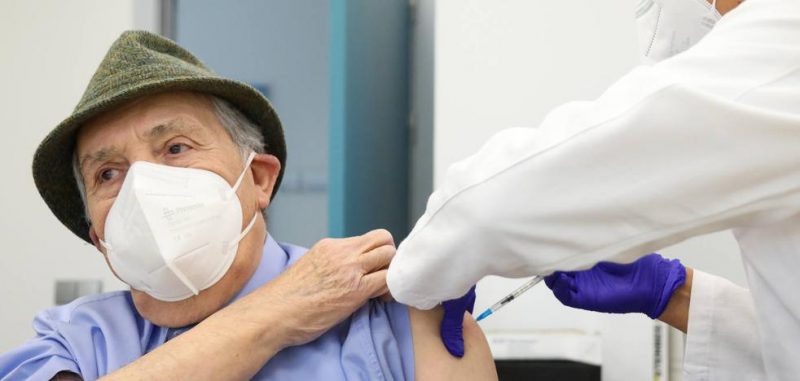
EXPERTS say they are optimistic that Spain will avoid a sixth coronavirus wave despite a surge in cases across Europe.
After a good start to the autumn, with the best coronavirus indicators in more than a year, the positive trend in Spain has taken a turn for the worse. The national 14-day incidence rate fell to its lowest point in mid-October, with 40 cases per 100,000 inhabitants, and since then, it has been slowly rising. It broke the 50-mark, considered “low risk” on November 4, reaching 67 cases per 100,000.
As has been witnessed throughout the pandemic, the spike in cases has taken two weeks to be reflected in hospital and intensive care unit (ICU) admissions. Hospitalisations dropped to a record low on October 29, when 1,640 Covid-19 patients were recorded. Meanwhile, in Spain’s ICUs, admissions reached their lowest point on November 5, with 386 patients. Since then, this figure has been fairly stable, with some small rises, with 395 Covid-19 patients currently in ICUs, according to a recent report from the Health Ministry.
Despite the success of Spain’s Covid-19 vaccination drive – 88.9% of the over-12 population is fully vaccinated, however, there are growing concerns about the current delicate situation in many other European countries. Germany, Austria and the Netherlands, which have lower vaccination rates than Spain, reported on Thursday, November 11, the highest daily number of coronavirus cases seen since the beginning of the pandemic. Deaths due to Covid-19 are also rising in these countries.
The question many are asking now is if Spain is on the brink of a sixth wave.
“The situation in Europe is a bit scary and the data in Spain are not good, given the indicators are rising. But I would not call what is happening here a wave. The rise is not that explosive, the impact on the health system is not significant, and nor is it likely to be, thanks to the vaccines. It’s more of an uptick that is rising slowly and that we must monitor now to see how it evolves,” explained Quique Bassat, an epidemiologist and researcher at the Catalan Institution for Research and Advanced Studies (ICREA) at the ISGlobal Institute in Barcelona.
Another expert in the field, Clara Prats, a researcher of Computational Biology at Catalonia’s Polytechnical University (UPC), expects that “cases are going to continue to rise for at least two more weeks,” adding:
“It’s more difficult to specify beyond that, although the advantage we have in Spain is that it has been the last country to see a rise and we can compare ourselves to those where it happened earlier and have similar vaccination rates. One example is Denmark. What we are seeing there is that the rise in cases has been significant but sustained since September, when they removed the last restrictions.”
Experts all agree that the improvement in vaccination coverage, with respect to the previous waves, is reason to be confident that the indicators will not worsen too much.
“In June, when the fifth wave began, we had two important weak points that we have now overcome. The younger population was not vaccinated [now nearly 80% of teenagers and the 20-29 age group are fully immunized], which allowed the virus to spread at great speed. And many people aged between 60 and 69 who had been vaccinated with AstraZeneca still had not received the second dose, which significantly increased the number of serious cases and hospitalizations among them,” in reference to the 12-week interval between the first and second shot of the Oxford-AstraZeneca vaccine. “This is not going to happen again,” she said.
READ MORE:
